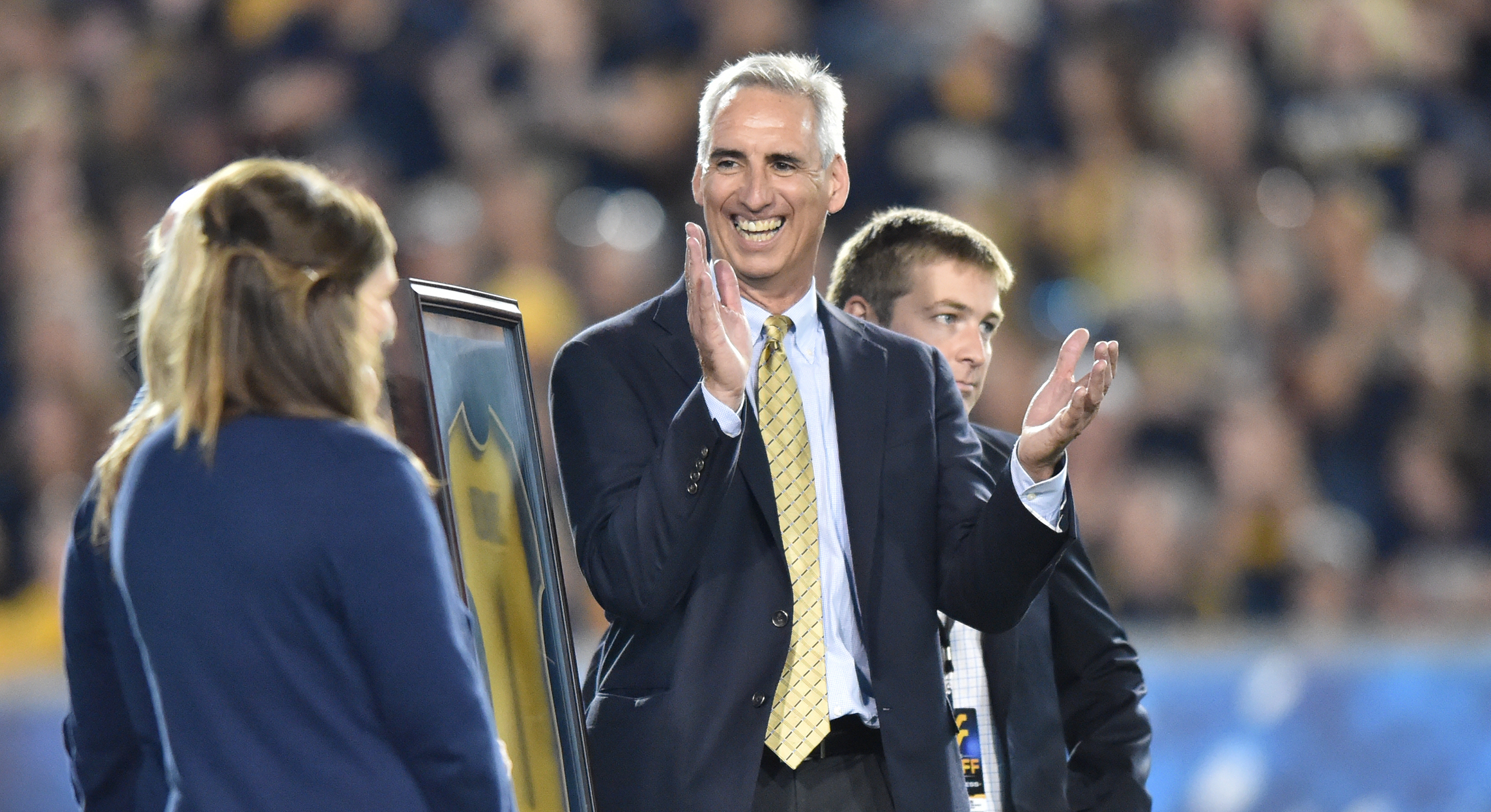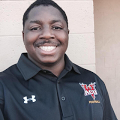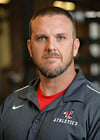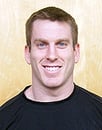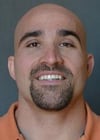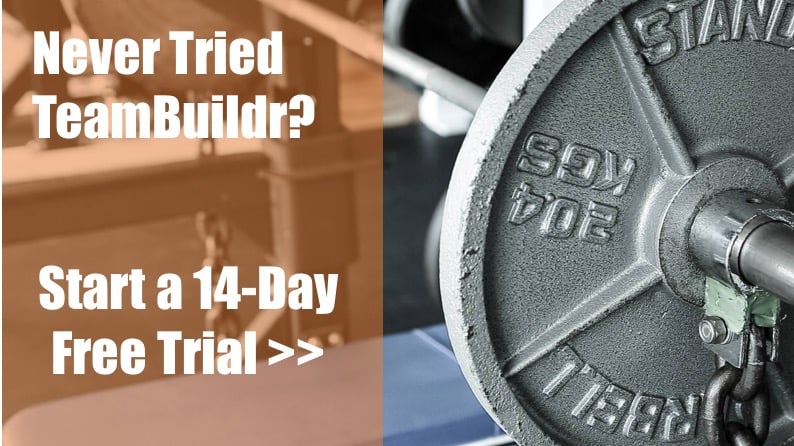Starting a Strength & Conditioning Program from Scratch
The strength and conditioning industry is well-known for it's grueling internships, strong mentorship, and networking within the existing hierarchy. These stages of a career do an excellent job of teaching an aspiring strength coach how to participate in existing systems and navigate new ones. However, internships and GA positions do little to teach young strength coaches about starting a strength and conditioning program from scratch.
With more and more high schools and small colleges creating full-time positions for head strength and conditioning coaches, the industry is seeing more young coaches than ever faced with the task of starting a strength and conditioning program from scratch. Although it is arguably a great career move, it also comes with massive challenges.
In this blog, we've brought in 5 strength and conditioning coaches - all of which are S&C coaches that built first-time strength programs at the collegiate level - to talk about their experiences and careers:
Terry O'Neill is the head strength and conditioning coach at Washington University - St. Louis, a Division III school with a rich athletic history.
LaDon Battle is the first head football strength and conditioning coach at Arizona Christian University, an NAIA school with a football program in its second year. Coach Battle is also the first deaf head collegiate strength and conditioning coach.
Steve Smith was the first ever strength and conditioning coach at Division III Lynchburg College in Virginia. Steve came up as a student, coach and professor and Lynchburg before taking on the task of build the strength and conditioning department. He is also a TeamBuildr customer.
Cory Walts became the first full-time head strength and conditioning coach at Division III Haverford College a few years ago and oversees every sport there. He is also a TeamBuildr customer.
Mike Caro starting building the strength program at Transylvania University before there even was a strength program when the university opened up a full-time position for him. He oversees 26 sports there.
1. What are the biggest pros of being the first strength coach at a school?
Terry: There is a large amount excitement and anticipation from the coaches as well as the athletes for a sports performance program. This makes it easier to teach every aspect of the program - from philosophy to exercises and habits away from the weight room. Athletes are generally eager to learn and improve and quick to give you their trust. Overall, it is a great situation to create your vision of how a sports performance program should be implemented.
LaDon: The biggest pro is that I’m able to learn as we go. I'm also able to develop my own philosophy and absorb information from other strength coaches at other programs while still being able to implement them. I try to switch things up and see what works best for our program.
Steve: The program was mine. The image of the program was something I was allowed to shape and brand. Additionally, most of our coaches were ecstatic about having this resource to map out and plan an effective S&C program. It allowed our coaches to focus on coaching and it allowed me to focus my attention on helping them reach goals they may have previously thought were unobtainable.
Cory: There is immediate excitement and enthusiasm from the student-athletes and coaches as you are solely viewed as an asset. You are not compared to anyone and the job you do is an addition in every way since there was nobody doing this job to begin with. Additionally, the structure you bring is widely desired and appreciated. You are able to mold the program into exactly what you want. Although creating the culture and acquiring the equipment you desire may take some time, you do not need to change things, just create them, which I believe is easier.
Mike: I get to create a program the way that I see most fit. Establishing a collegiate strength and conditioning program is something that very few strength coaches will get to do. For the most part, everything is uncharted waters for the coaches and student-athletes. Most of the athletes have never participated in an all-encompassing (athletic performance training, nutrition, recovery, etc.) strength & conditioning program. Many of the coaches and administrators haven’t either, and therefore they have low expectations. This is a double edged sword: You could just do the minimum and make the job as easy as you’d like. Its likely that no one would have any problems and improvements would be made, to a minimal degree. Personally, I’d rather go the opposite direction and do everything I can to ensure that if these athletes and coaches ever work with a different strength coach, they have very high expectations.
2. What are the biggest cons?
Terry: Establishing boundaries can be tough in this situation. Positive feedback is often accompanied with a desire for more and sport coaches will tend to pull at you for more time in the weight room and around the team in general. If you are the lone performance coach (and chances are you will be in a first-year program) this can wear you down if you don’t establish boundaries. Balance is in everyone’s best interest.
LaDon: The biggest con for me is communication. With me being deaf it can be frustrating when trying to work with teams that are not aware that I cannot hear. My main job is with the football team that can be tough because with the schedule so tight with school, work, and team meetings getting most of them in for a lift is not easy.
Steve: There were really 2 drawbacks. The first being that I had very few resources and I no budget.. It makes you look deep at what is the institutional support of this program if they are not willing to provide you with an operating budget. I tried to turn that into a positive by creating a program that the College could not walk away from. Having never won a team National Championship, we won within 2 ½ years of my start date (women’s soccer), we also played for a National Championship but came up a little short (Men’s Lacrosse). We also produced an individual track and field National Champion in my first year as well.
The second drawback was that some coaches were afraid to relinquish their team to me. I had a coach hand me a workout and told me to implement that workout verbatim. Other coaches wanted me to entertain their athletes more so than to train them from time to time. However, once coaches started to see the success of some teams that bought into what I was doing as the S&C coach most of those coaches bought in as well (not all but most).
Cory: Limited equipment. Poor facility design/layout. No organized schedules. No programs in place which means they ALL need to be created immediately which is very time staking.
Mike: In general, you can expect a lot of work, little (if any) funding, cheap equipment, and minimal space. Small schools don’t have much to support first time strength coaches. Being able to think outside of the box is a necessity, because you usually have to do a lot with very little, or nothing at all. Sacrifices are a must. But looking back on the success of a program you have built that is serving its function well is priceless.
3. In retrospect, what are some mistakes you made that you would not have made in a program that already had an established strength program?
Terry: It may be too soon to look back right now. I am completing my first year and everything has been going well. We have taken the right steps at each turn as far as I can tell. I think part of the success we’ve had together is that I have started with the basics and made each athlete earn their progress. The process of doing that has been tough and the athletes not only respect it but take pride in it.
LaDon: One mistake I have made is not being involved enough with the athletes during their workouts. And sticking to a workout program that was handed to me that I didn't agree with.
Steve: I assumed since I did not have a budget I often never asked to purchase items I thought we needed. I was lucky to have a couple of teams that purchased a few pieces to facilitate some speed, agility, and quickness programs but I often tried to keep my nose down and work with what I had.
Cory: I would have kept my program design simpler. I tried to be too perfect in everything from card design to exercise technique. I would have instead worried most about the intent each individual had with basic movement patterns then got more complex with the movements/exercises as we proved we were capable.
Mike: In a pre-established program, you would either have a budget already laid out from a previous coach or, as an assistant, you may not need to worry about a budget. Not having a budget is difficult, but mismanaging one can be detrimental to your program. In many small school strength & conditioning programs you have to fundraise and ask the sport coaches to donate to you. It can be tricky deciding exactly how to use these limited funds.
4. What’s harder: Building a relationship with athletes or building a relationship with coaches? Why?
Terry: Coaches. If you know and believe your philosophy and approach, it is easier to sell to the athletes. You will also spend more time with the athletes than the coaches so their is a greater opportunity to build that relationship.
Sport coaches, on the other hand, have typically been handling their own strength and conditioning program until a performance coach arrives. They may guard their athletes and be reluctant to let you into their circle. Additionally, they may have a conflict with your philosophy because either they are not informed or they have had success with what they have “always done.” Building a relationship with them generally takes more energy and patience.
LaDon: Coaches. Coaches hire you to keep their players in shape, make them stronger and faster. If we want to keep our jobs we need a relationship where the coach wants to keep us.
Steve: Coaches. Especially assistant coaches.
Our more successful coaches bought in immediately. I recall my first meeting with our Men’s Lacrosse coach. He said, "This is your show and you tell us what to do and we’ll do it." All he asked was that I keep the workouts to 45 minutes to an hour max. Once the coach buys in the players buy in.
Assistant coaches are harder. They often think they know exactly what the athletes need because it is what they do. I would always ask for input because I certainly do not know everything. If there was something I could implement from a coach's suggestion then they feel like they are part of what’s going on.
Cory: Athletes. While coaches mostly only care that the program is structured and you get the end result, student-athletes see everything. Thus you need to be on at all times, not just during a meeting like you would with a coach. Furthermore, there are more of them which means many more types of personalities and interests. Not everyone you are dealing with cares as much as you’d like them to. You have to balance building a relationship with these individuals along with those that care immensely, and all those in between. Furthermore, the age, sex, and ability of the student-athlete will also play a role in the type of relationship you develop.
Mike: Athletes. It was easy to build relationships with coaches because I was providing a necessary service they didn’t have access to before. Building relationships with athletes is a bit more difficult. Some athletes will have the preconceived notion that, as the strength coach, you are there to physically punish them. It can be difficult to overcome this stereotype at first. The best way to break through this barrier is to show the athletes that you care about them as people, as well as their performance. Once they believe that you have their best interest in mind AND you’re honestly trying to help them to perform at a high level, they will buy into the program. On a related note, creating buy-in is more difficult in today’s era of “Internet-Know-It-All” coaches. Online training videos and programs appeal to some student-athletes as a quick fix for top performance. This can make them skeptical. Once again, meeting the athlete at their level, building trust, and creating a positive relationship will overcome this problem.
5. If a strength coach balanced a job offer from an established program and an offer to be the first strength coach within a program, all things equal, what would you recommend?
Terry: This depends on the career goals of the individual. If the individual is ready to commit him/herself to the destination and the fit is equally good on both sides, I can’t imagine a better situation than getting to establish a program from scratch.
LaDon: It all depends on how much experience a person has. If someone is new to the NCAA/NAIA level I would recommend an established program to better understand how things are being ran how the Master Strength Coach handles the schedule and the staff that works with him.
Steve: It depends on the individual. If the right school, the right situation, the right facilities, and the right location presented itself then I think you have to at least listen. I posted a picture in my office of a weight room and I titled it; “The Dream.” I really wanted to create that established program here. I firmly believe that had I not had the success that I did, that the person that replaced me would not be here. I feel like I provided an incredible opportunity for our athletes, our coaches, and a new younger S&C coach that can take us to another level.
Cory: Personally, I loved being the first coach at my school and would recommend doing the same thing if given the choice and all is equal. I think it’s exciting creating something from scratch and it gives me great pride in seeing it through. I was able to mold the program into exactly what I wanted it to be immediately instead of having to gradually change things.
Mike: It really depends on your personality and where you are in your career. If you’re young and you want to learn how an established program is run, you’d go that route. Personally, I enjoy challenges (and calling the shots) and I wanted to try my hand at an opportunity that few coaches will ever do.
6. Is being the first strength coach at a program a good career move? Why?
Terry: This depends on the individual that receives the offer. If that person is ready, it is a great move because they will make an immediate positive impact and can immerse him/herself in the profession they enjoy. If this happens too early in a career, it can be a disaster and the small stuff can become overwhelming and break the individual.
LaDon: It's a risk… It's a good career move if you helped turn around a program into a top contender and show a great improvement in strength, speed, and agility. It is not a good career move if you ended up with no results, too many athletes not showing improvement in strength, speed, and agility or the program did not get better overall.
Steve: For me, it was. I was able to negotiate my contract. I believe I was an exception because I was already here. I also worked as an Associate Professor, I have a terminal degree, and several years of service. Someone new would probably not start with the same salary I did.
Cory: I believe so. The experience you develop while learning on the fly is something you can’t learn any way else. From creating a budget, purchasing equipment for the first time, laying out a room, designing programs from scratch and coaching an entire athletic department of beginners, these are all skills that are invaluable and can be carried over to a variety of positions moving forward.
Mike: I believe it is, if you do it well. What’s not for a future employer to like about a driven, self-starter who can create and manage a strength & conditioning program? I would be more likely to hire a strength coach who has created a successful program and can think creatively than a coach who has simply followed what they were instructed to do, without facing the variety of challenges that come with establishing a new program.
7. If you could give a reader one piece of advice to successfully start a strength program at a school, what would it be?
Terry: Make sure you feel prepared, excited, and passionate about the challenge your situation presents. Otherwise, it is not the job for you.
LaDon: My advice would be to network with as many strength coaches you can find locally or nationally. Always be open to learn and don’t get discouraged if things are not working out. Make sure your relationship with the sports coaches and the athletic director is in good standing. All these things will affect how much support you can get for the strength program.
Steve: Be reflective. The one thing that I learned over the years is; I don’t know everything! Look back at what you did and take notes and understand that mistakes are part of the game. But success happens when you learn from those mistakes.
Even though you asked for 1 I am going to give 2 pieces of advice. BE CONFIDENT! If you are not confident in what you are doing coaches, athletes, administrators, and opponents will eat you alive!
Cory: Know the "why." You will be questioned in everything you do so be confident in your rationale.
Mike: Don’t try to please everyone all the time. It's tempting to look good by making everyone happy, but it may not be realistic. You need to pick your battles wisely. To develop a solid program, a new strength coach must focus on what they can control.
Subscribe to our blog
Subscribe to receive the latest blog posts to your inbox every week.
Related posts
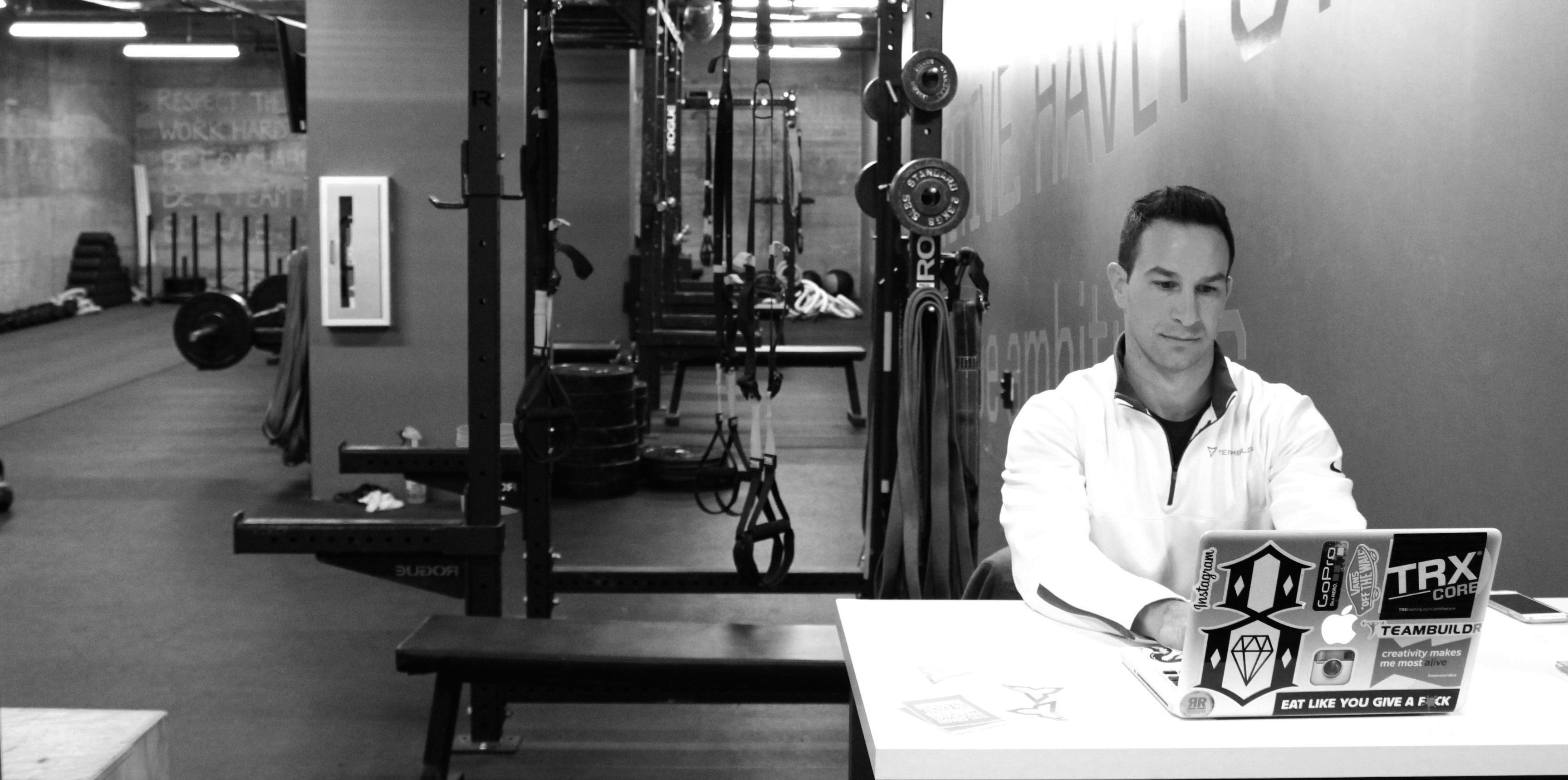
A Strength Coach's Lie: Tracking Yourself to Death

5 Steps to Building a Successful Internship Program
